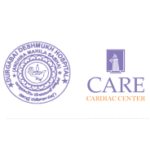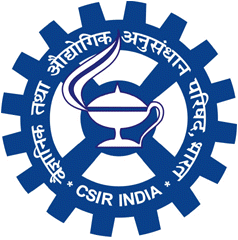Treatments Focus
Numerous Food Allergies

Approximately 20% to 30% of total population in India suffers from at least one allergic disease. Of this, up to 3% of them have food allergies, majority of them to be below the age 40.
Food allergy can be defined as the body’s immune reaction to eating certain food, as the body perceives them as dangerous invaders. These reactions often occur immediately or within a few minutes after the food in-take with visible or noticeable discomfort (e.g. tingling sensation in mouth, swollen lips, or a skin rash).
Importance in diet
Common allergic symptoms include:
Tingling or itching
in the mouth
Itching or skin rash
Swelling of lips, face or other parts of the body
Trouble in breathing
Dizziness
Abdominal pain, diarrhoea, nausea or vomiting
Most severe allergic reaction is anaphylaxis – a life-threatening reaction in some people. This could cause difficulty in breathing, fall in blood pressure level, rapid pulse, dizziness or fainting. If untreated with epinephrine (adrenaline), this allergic reaction could lead to unconsciousness or death.
Causes
The majority of food allergies are triggered by certain proteins in the following foods:
Eggs
Milk and Dairy
Groundnuts
(also known as peanuts)
Tree nuts, such as
walnuts and pecans
Fish
Shellfish
Wheat
Soy
Sesame
Risk factors that can cause food allergies include- your age (children are more susceptible), genetics (genetic changes and family history), asthma diagnosis.
Diagnosis & Treatment
Symptoms of an allergy are usually self-diagnosed. You need to visit your healthcare provider for a specific diagnosis and treatment. It can be confirmed after carefully observing your symptoms and running some blood tests or skin prick test. They will discuss certain elimination diet plans that can be tried and then prepare a chart with list of foods for you to eat and avoid.
FAQ's :
Yes, food allergies do have a genetic component. Chances of your child to have a food allergy increases if an immediate family member (parent or sibling) already has a food allergy.
A sudden change (mutation) in the FLG (flaggrin) gene causes tree nuts allergy (hazelnut, groundnuts, almonds, brazil nuts, etc.)
Yes, food allergies can be developed at any age. However, adult-onset of a food allergy or any allergy is quite uncommon.
Currently, there are no permanent cure for food allergies. However, with the help of medicines and awareness they can be treated. Recent studies and advances show that by using genetic testing, food allergies can be treated with personalised medicine.
The best way to avoid food allergies is to take allergen-free diet. Other ways include, to carefully read the ingredients labels or to inquire or inform the restaurant waiter to avoid using ingredients that cause your allergy while eating away from home. As preventive measure you can carry your allergy treating medicines when on the go.
Food allergy causes an immune system reaction, with mild to severe symptoms. In contrast, food intolerance symptoms are less serious and often limited to digestive problems.
References:
- Living with food allergies. Kids with food allergies. https://www.kidswithfoodallergies.org/what-is-a-food-allergy.aspx Accessed on 25-03-2022
- Food Allergy. Find an allergist. https://acaai.org/allergies/allergic-conditions/food/ Accessed on 25-03-2022
- Causes, symptoms and prevention of food allergy. National Center for Biotechnology Information. https://www.ncbi.nlm.nih.gov/pmc/articles/PMC3834685/ Accessed on 25-03-2022
- Food Allergy. Mayo Clinic. https://www.mayoclinic.org/diseases-conditions/food-allergy/symptoms-causes/syc-20355095 Accessed on 25-03-2022
- Can Food Allergies Be Genetic? News-Medical Lifesciences. https://www.news-medical.net/health/Can-Food-Allergies-Be-Genetic.aspx Accessed on 25-03-2022
- Genetics of Food allergy. National Center for Biotechnology Information. https://www.ncbi.nlm.nih.gov/pmc/articles/PMC2892276/ Accessed on 25-03-2022
Related Articles
Book an Appointment to understand how GenepoweRx can help you in treating
Numerous Food Allergies
Meet The Doctors
Dr Kalyan Uppaluri
Dr Hima Challa
Your genetics … Your Test ... Your Health Success
It’s always the word of mouth that’s the best advice. Here are some of our…


Our Partners






Professional Partnerships
Government Association

